Women Are Finally Starting To Get the Recognition They Deserve, Says Olympian and Simone Biles’ Coach Cecile Landi
Published 02-28-23
Submitted by International Olympic Committee
International Olympic Committee news
While the Olympic Games have become more gender equal, with women accounting for 48 per cent of athletes at Tokyo 2020 and Paris 2024 expected to reach full equality, the number of female coaches at elite level remains remarkably low. Through this series, the IOC is highlighting female coaches who have broken those barriers and are inspiring younger generations. Cecile Landi, Simone Biles’ coach, is one of them.
Gymnast Cecile Landi, who competed for France at the Olympic Games Atlanta 1996, now coaches Simone Biles, the most decorated gymnast in history. Landi has seen progress for women in many areas in and through sport, and says that – apart from in gymnastics – men have always had more airtime on television, but that this is changing. Women are finally starting to get the recognition they deserve.
This progress has been helped by the IOC’s work on scheduling, which has enabled women’s events to have the same broadcast opportunities in terms of timings and audiences. Increasing the number of women’s events in prime time across key territories can make a real difference in raising the visibility and prominence of women’s sport.
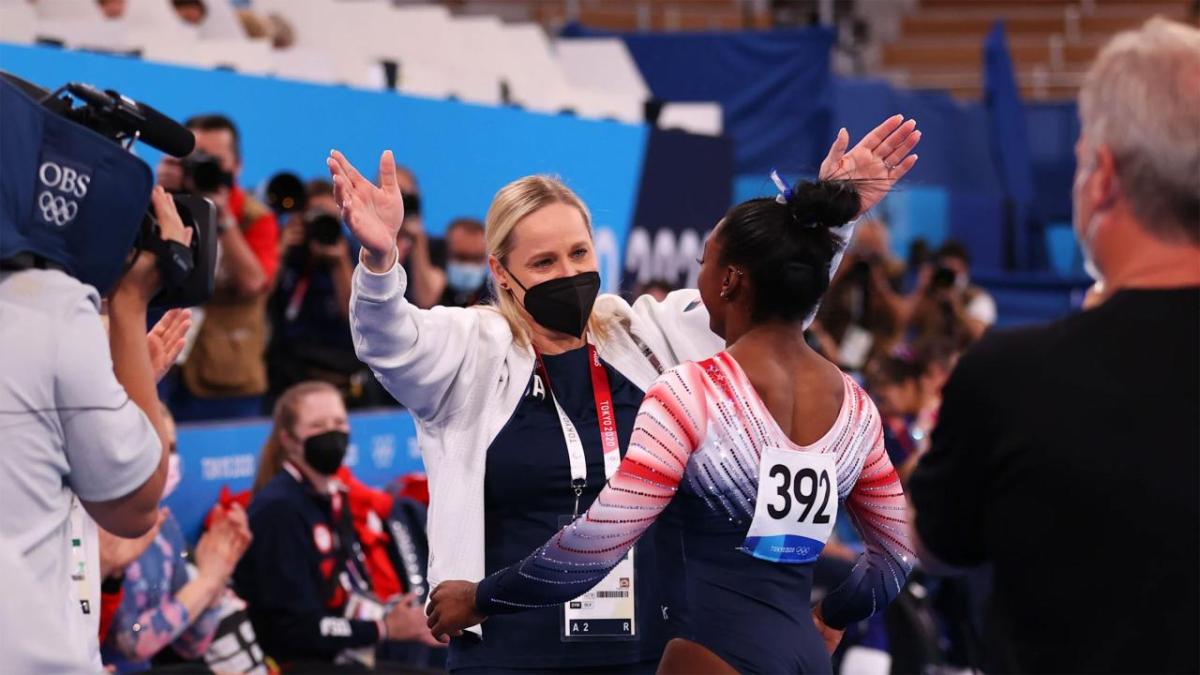
Meanwhile, with athletes such as Serena Williams and Biles reaching new heights in their respective sports, audience perceptions are shifting. “I think it’s shifting in the right direction because women are breaking boundaries and records,” Landi said, adding that many women are also getting commercial sponsorship.
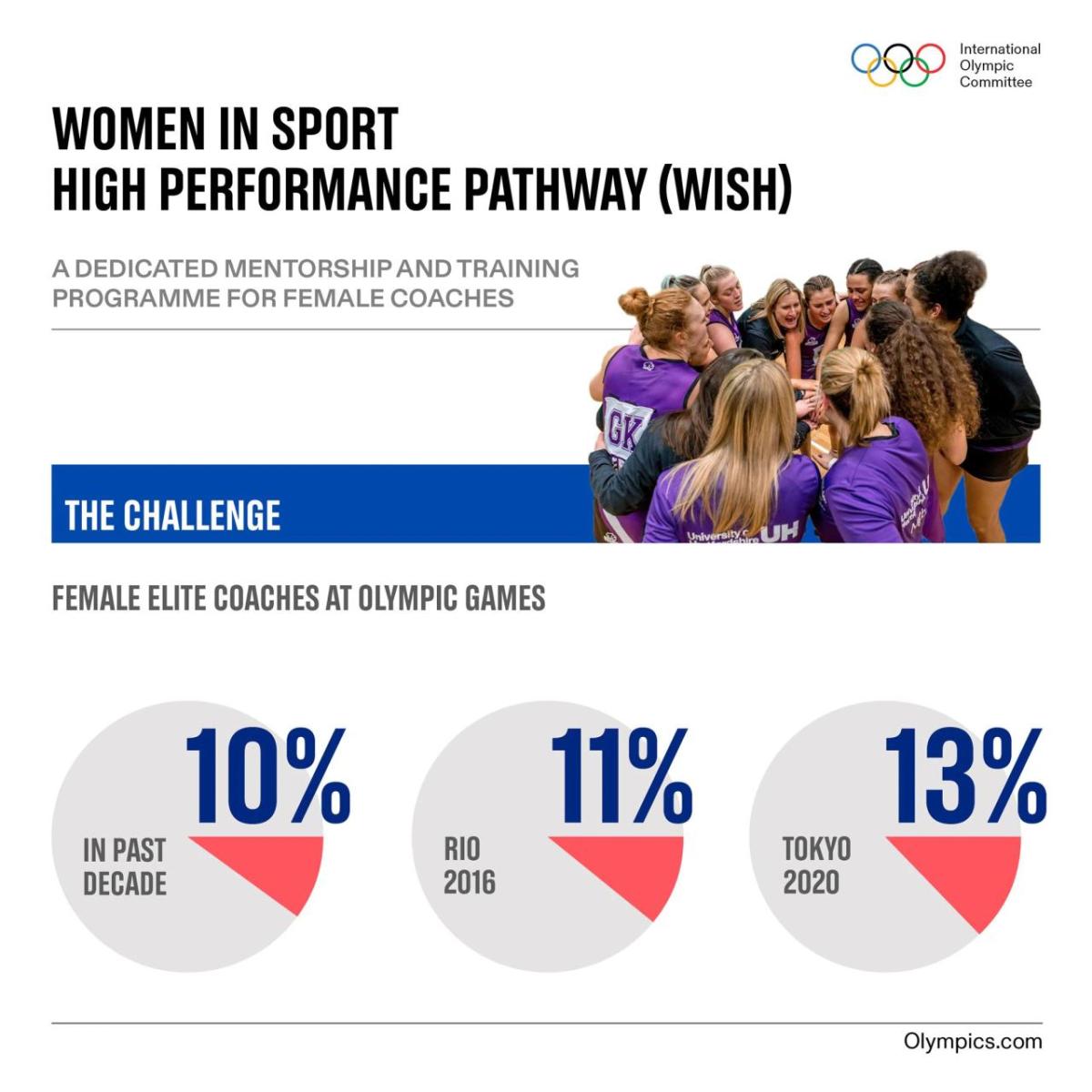
“It’s shifting,” she said. “But you know, it could always be better.” Stereotypes still exist, for example, that maybe women are not as strong as men, she said. “I think mentally we can handle a lot more than some of the guys around.”
Women coaches understand the pressures on young women
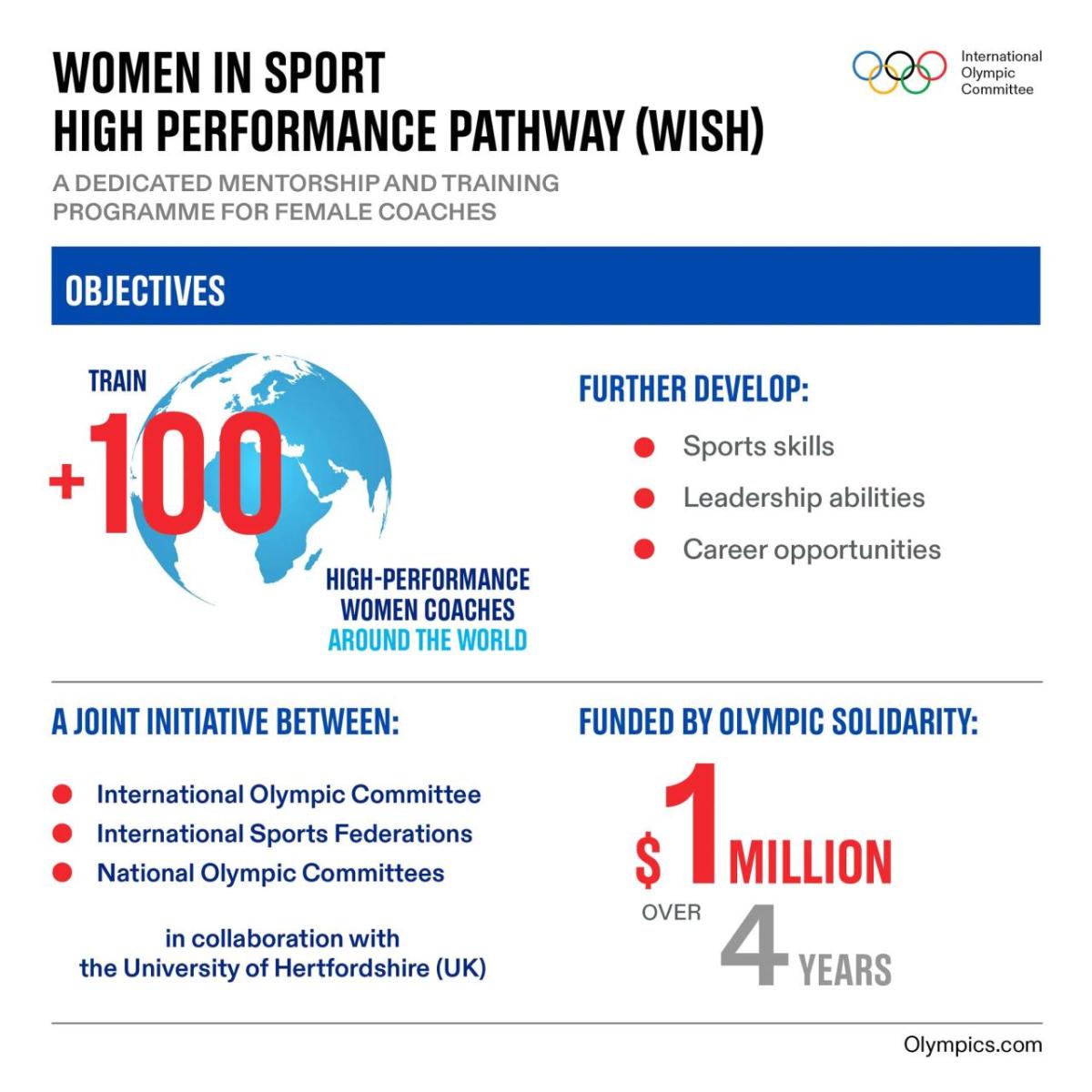
As a gymnast herself, Landi – whose maiden name was Cecile Canqueteau – competed for France in the 1994 and 1995 World Championships and then at the Olympic Games Atlanta 1996. She retired from elite gymnastics in 1999 but competed for her club until 2002. She then spent four years coaching in France, before moving to the United States in 2004. In October 2017, she started coaching Biles along with her husband Laurent.
Landi says that, as a woman coach, she understands the pressures on young women, including diet and the changing body. Puberty helps male gymnasts, who become stronger, but can make life harder for the women. “And that is something that I had to go through, and I had to deal with, and it was not easy,” she says. “I think that’s why the girls can really relate to me a little bit more – that’s the female brain, the understanding.”
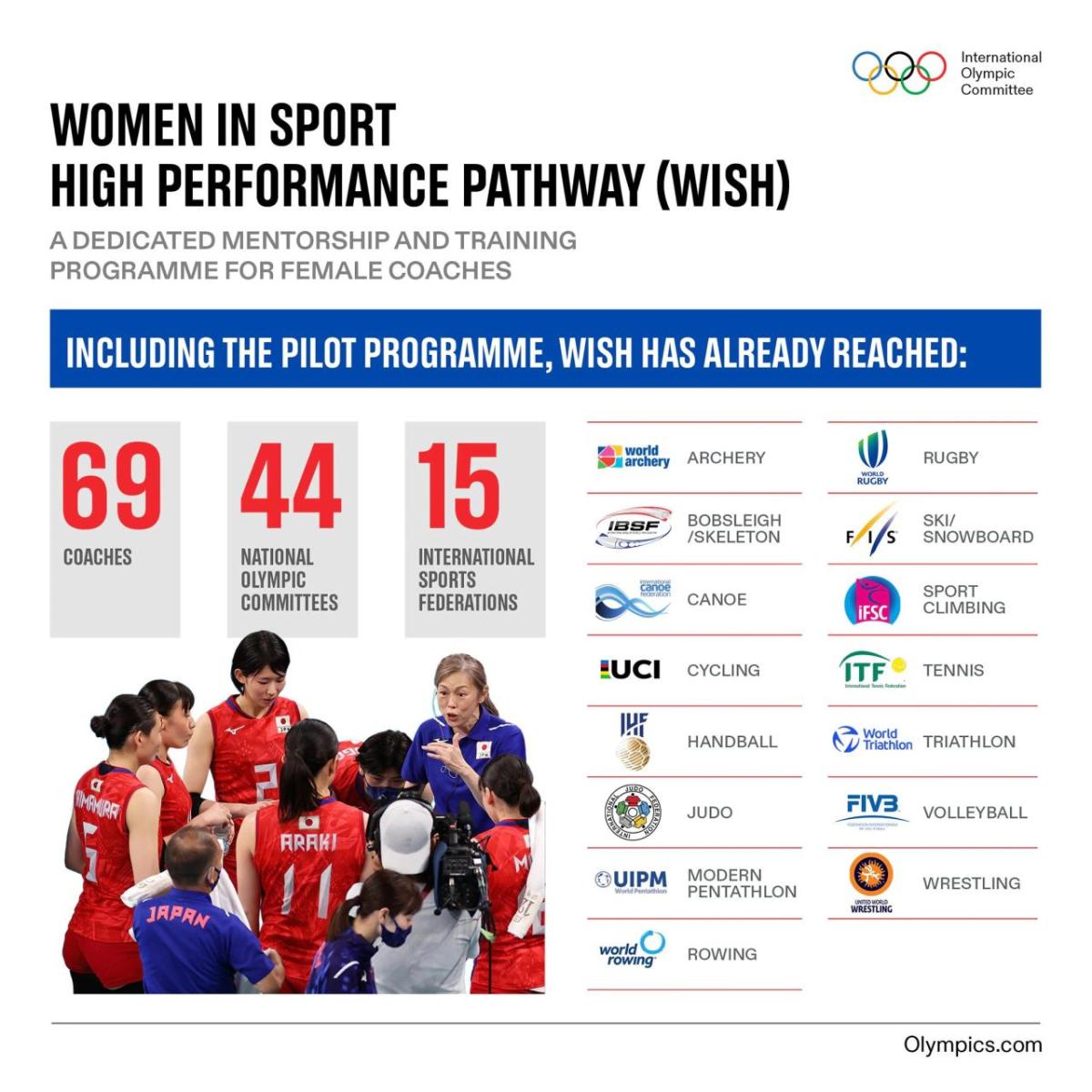
Safeguarding athletes and their mental health
Perceptions surrounding mental health have also changed dramatically over time. Mental health was not given much attention in the 1990s, but things have changed since then, says Landi. “Mental health was not real in the nineties for me. [If there was a problem] they would say to us things like: ‘you are lazy, you just don’t want to do it,’ or things like that,” she said.
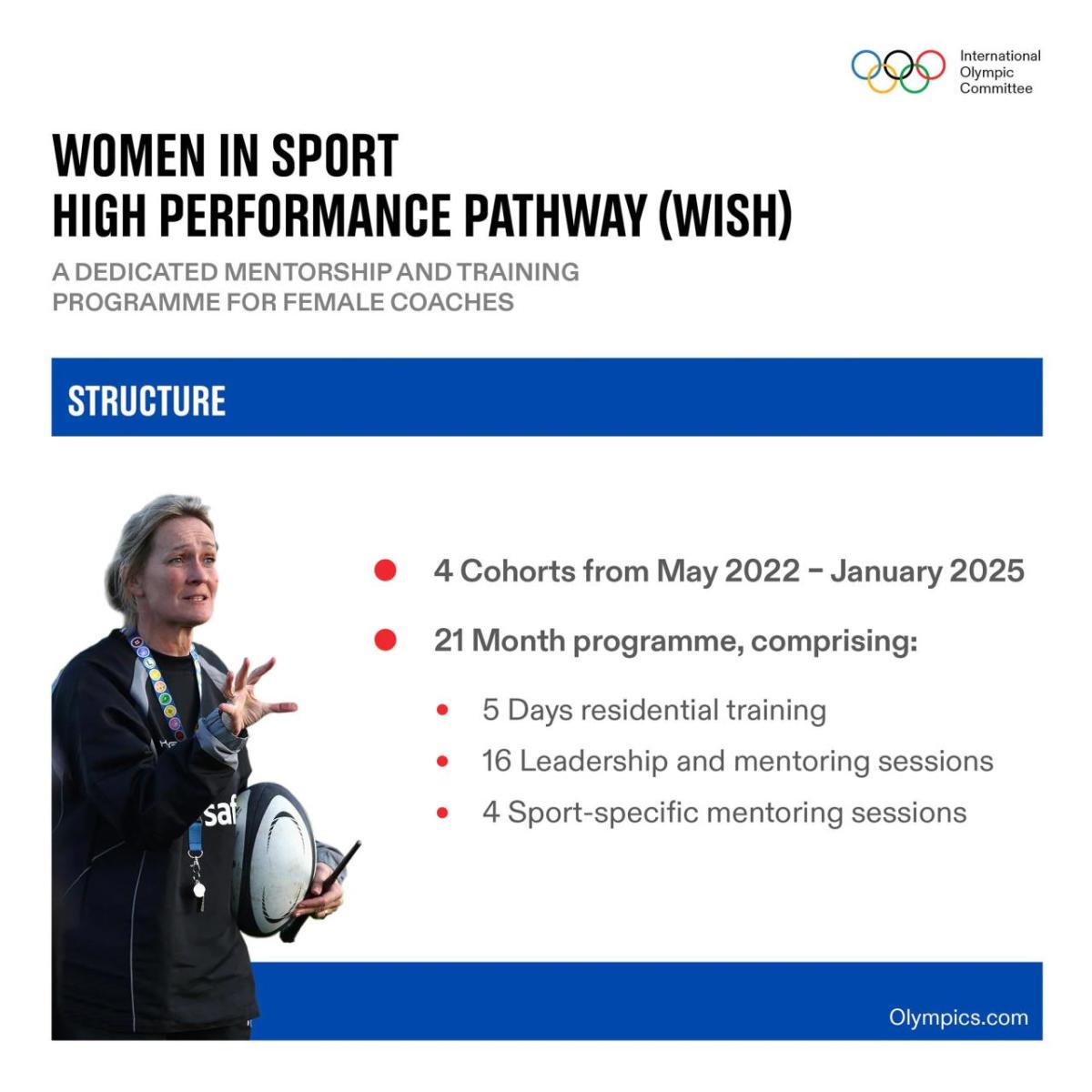
Landi credits her French education with helping her to understand how negative comments can strongly impact children. The cases of abuse discovered in recent years have underscored the vital importance of safeguarding athletes and their mental health. “That’s when we saw that it did affect them [the gymnasts] way more than we ever thought,” she says. “Mental health became more and more [important].”
It was also another reminder of the very real risks facing athletes, especially women. The IOC’s 2021-2024 gender equality objectives place fresh emphasis on the safety of athletes. The IOC aims to ensure that athlete safeguarding is included at every stage of every Olympic Games.
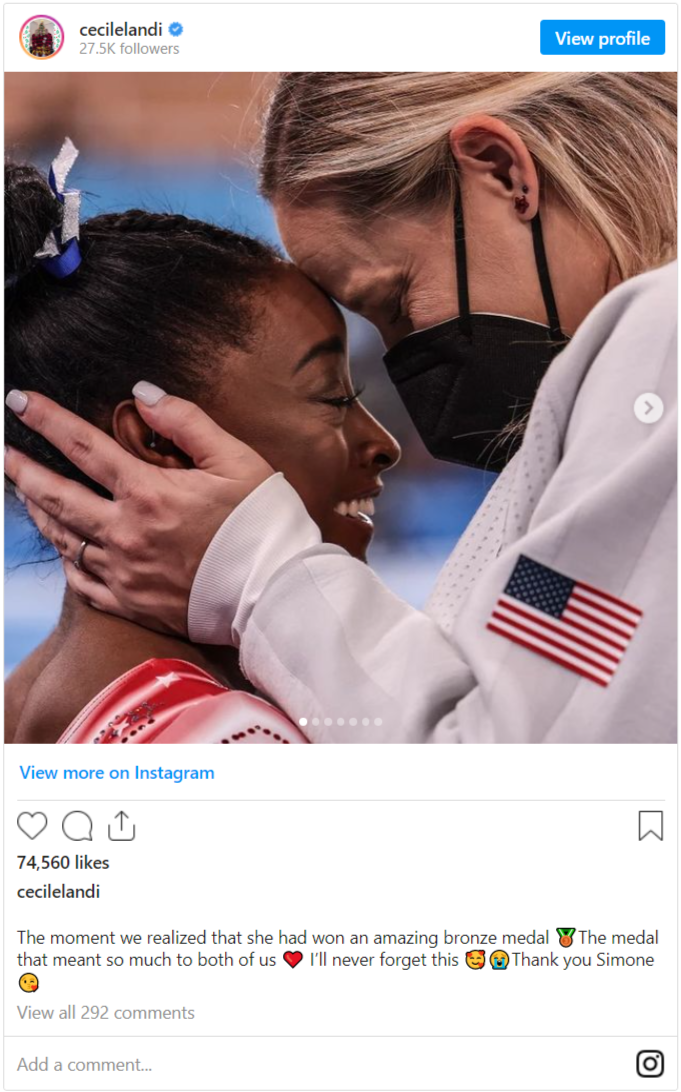
“Talking with the girls [in my team], I think I just want to let them know that they can tell me anything,” says Landi, who says she watches the gymnasts’ body language a lot to understand how they are feeling, and talks with them if something looks off. “I don’t judge them,” she says. “[I tell them] if you need any help, I’ll go with you.”

International Olympic Committee
International Olympic Committee
The International Olympic Committee (IOC) is a not-for-profit independent international organisation that is committed to building a better world through sport. It redistributes more than 90 per cent of its income to the wider sporting movement, which means that every day the equivalent of USD 3.4 million goes to help athletes and sports organisations at all levels around the world.
As the leader of the Olympic Movement, the IOC acts as a catalyst for collaboration between all parties of the Olympic family, from the National Olympic Committees (NOCs), the International Sports Federations (IFs), the athletes and the Organising Committees for the Olympic Games (OCOGs) to the Worldwide Olympic Partners, broadcast partners and United Nations (UN) agencies, and shepherds success through a wide range of programmes and projects. On this basis, it ensures the regular celebration of the Olympic Games, supports all affiliated member organisations of the Olympic Movement and strongly encourages, by appropriate means, the promotion of the Olympic values.
More from International Olympic Committee

